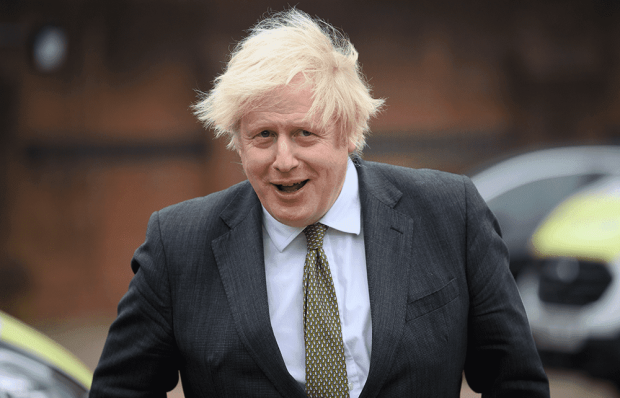Lessons for the government
Sir: James Forsyth suggests that the Prime Minister wishes to avoid sounding as if he is blaming voters for the rise in coronavirus infections (‘Lockdown breakdown’, 26 September). Mr Johnson appears to have already crossed that line.
In education we recognise that a teacher has lost control of their class and of their own good judgment when they become exasperated with their pupils for not learning anything. Fortunately, we know a great deal about how to help someone stuck in this negative cycle.
Good teachers are predictable and consistent; they know that it is futile to claim that a rule is vitally important if it comes with a list of options and exemptions. They recognise that when strategies don’t work they need new strategies, not new children. They understand that the unfairness of punishing the whole class for the misbehaviour of a few always results in poorer behaviour in the long run. And they know that the best lessons are those that equip learners with skills that enable them to make independent judgments, not merely pass tests at the end of the week. Might there be lessons in any of this for our political leaders in these very strange times?
Dr Simon Burnham
Portsmouth, Hants
Global allies
Sir: I agree with Christopher Meyer, in his review of The Churchill Complex (Books, 19 September), that the United Kingdom has never been seen by the United States as having a privileged status that is not available to other countries. But I was surprised that he did not acknowledge that most of the time the UK has been a more important ally to Washington than any other. The US has very close ties with, and commitments to, Israel Japan, South Korea and Taiwan. But these all relate specifically to the security of these countries. Germany is more important than the UK on economic matters but has negligible military capability and modest diplomatic clout outside Europe. France has, since de Gaulle, tried to distance itself from US leadership of Nato and the West.
The UK has had for over 70 years a unique intelligence-sharing relationship with the US through the Five Eyes system. We are the first ally of choice for the US when it engages in military operations overseas even though our forces are modest compared with theirs. Although we do not always support US foreign policy, especially that of President Trump, we are more likely to support a tough response to Russian, Chinese or other aggressive states than are most continental European countries.
When I was defence secretary, at the height of our differences with the US over the Bosnian war, I asked the US defence secretary, Bill Perry, whether the US might sell us cruise missiles. He replied that they would as long as they could be shown any public remarks that we might wish to make. He wanted to be sure that no other country would think that the US would sell them cruise missiles! If the UK is not the US’s closest global ally, who is?
Malcolm Rifkind
London SW1
The wrong army
Sir: In his article about Boris’s opportunity to turn the tide, like Churchill at Dunkirk, Richard Dobbs says ‘While the air force and navy helped shift the balance of power in the war, ultimately it was the army that took Berlin’ (‘A Churchillian task’, 26 September). He’s right, of course. But he’s got the wrong army.
Sir Rodric Braithwaite
By email
Don’t be gulled
Sir: Tim Newark is quite correct to say that herring gulls are not endangered (‘Cull the gulls’, 10 September). The ‘algorithm’ which shifted the herring gull to the Red List is of no use for the herring gull and lesser black-backed gull, our two urban species. Implicit in the algorithm is the idea of a species which has been steadily going downhill. The chosen start point for the assessment is whenever there is some solid data which, for gulls, is a nationwide seabird census from 1969-70. However, this starting point happens to coincide with an astronomic peak in the numbers of these two gulls as a result of a food bonanza.
The Red List decision was based solely on coastal sites, and took no account of the burgeoning numbers of gulls in inland towns. Dave Slater of Natural England misinforms your readers when he claims that ‘clearing litter and emptying public bins’ is the answer (Letters, 19 September) — there is ample research to show that they get most of their food from landfill sites many miles away. He is correct in saying that there is no cap on urban gulls being controlled under licence — in theory at least. But the bureaucratic rigmarole introduced by Defra and Natural England this year makes it impossible for pest controllers to implement effective, low-cost treatments. In the past they could do this under a ‘general licence’. Now each action requires a specific licence, with an application form many pages long. Simple, effective methods of stopping eggs from hatching have been keeping the gulls out of Bath’s Royal Crescent, the Circus and other Georgian areas whenever they try to expand into them from the city centre. Does the government really want to turn these World Heritage sites into artificial gull colonies?
Linda Gamlin B.Sc.
Bath
Scratching the etch
Sir: If Dr Johnson and Lord Moore (The Spectator’s Notes, 19 September) accessed the Oxford or Cambridge Dictionary of Place-Names they would discover that the ‘etch’ of Etchingham refers to Ecci. The place name means the home or flat ground (by a river) (ham) of Ecci’s people (Ecci + inga). I hope that Charles is not called Lord Ecci by his new noble friends.
George Curry
Newcastle upon Tyne
Write to us letters@spectator.co.uk
Got something to add? Join the discussion and comment below.
Get 10 issues for just $10
Subscribe to The Spectator Australia today for the next 10 magazine issues, plus full online access, for just $10.
You might disagree with half of it, but you’ll enjoy reading all of it. Try your first month for free, then just $2 a week for the remainder of your first year.














Comments
Don't miss out
Join the conversation with other Spectator Australia readers. Subscribe to leave a comment.
SUBSCRIBEAlready a subscriber? Log in